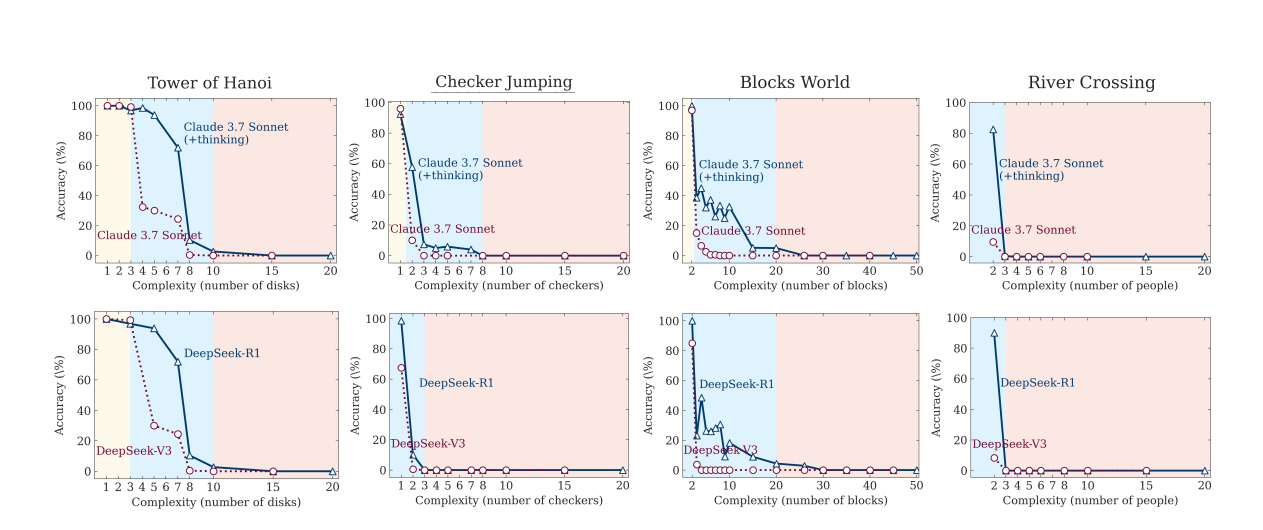Before 2030, will an AI system be able to solve compositional problems of arbitrary depth?
4
Ṁ100Ṁ552029
47%
chance
1H
6H
1D
1W
1M
ALL
Given a problem that requires repeated application of specific rules (such as multiplying two large numbers or solving towers of Hanoi), will any AI system be able to generalize to arbitrarily large compositional depth? A new paper by Apple shows that they cannot currently do this.

It still counts even if the system shows some performance drop off with increased depth. What I'm looking for here is performance that does not drop of exponentially past a certain depth.
It does not count if the AI system is doing this by writing code.
Update 2025-06-07 (PST) (AI summary of creator comment): - The AI system is allowed to use a scratch pad or external memory.
This question is managed and resolved by Manifold.
Market context
Get  1,000 to start trading!
1,000 to start trading!
Sort by:
People are also trading
Related questions
Will AI be Recursively Self Improving by mid 2026?
14% chance
Will an AI solve any important mathematical conjecture before January 1st, 2030?
79% chance
Will AI achieve superintelligence in music composition by 2026?
11% chance
If there are medium-hard to tough problems on the 2026 IMO, will AI solve them?
When will AIs be good at solving complex problems? (read description)
Will AI be able to create a video with this much detail by 2030?
92% chance
Would an AI be capable of constructing a non-brute, ultraweak proof of chess for this board state by 2030?
48% chance
Will we have AI that can explain chess moves logic in human language by 2030?
96% chance
By 2030, will Ai picture generators be able to do basic geometry and projections?
91% chance
Superhuman mathematical problem solving before 2030, assuming no AGI yet?
18% chance